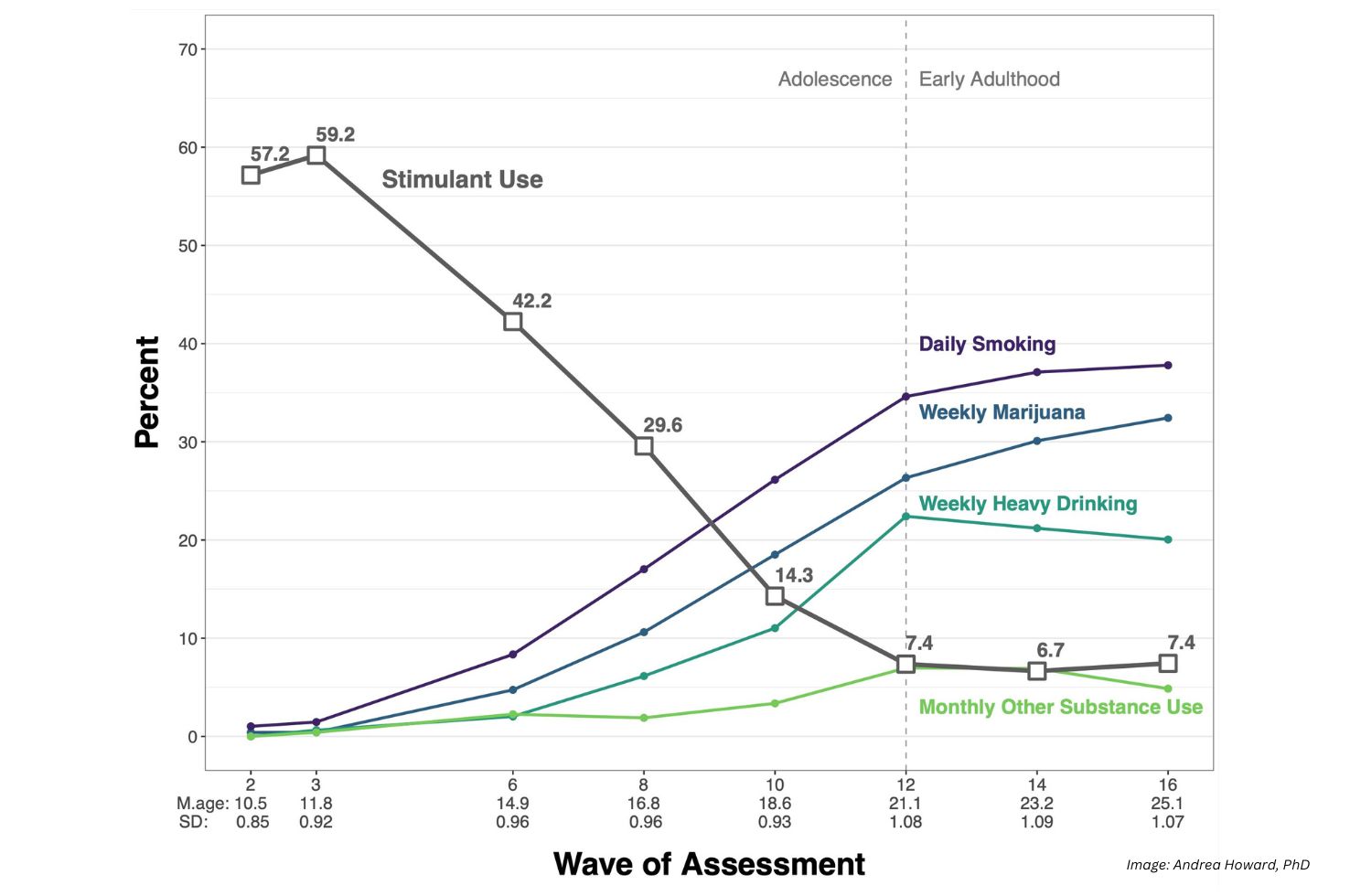JAMA Psychiatry: Association Between Stimulant Treatment and Substance Use Through Adolescence Into Early Adulthood

In treatment of children with attention-deficit/hyperactivity disorder (ADHD), is use of stimulant medication associated with subsequent use of alcohol, marijuana, cigarettes, or other drugs?
Investigators including Brooke Molina, PhD (Professor of Psychiatry, Psychology and Pediatrics), and Traci Kennedy, PhD (Assistant Professor of Psychiatry), from Pitt Psychiatry, conducted a cohort study of 579 children ages 7–9 with ADHD initially treated in a randomized clinical trial—the Multimodal Treatment Study of ADHD (MTA)—to comprehensively and prospectively assess both substance use and the demographic, clinical, and psychosocial factors that contribute to substance use and treatment.
Children were recruited to the study between 1994 and 1996 and randomly assigned to one of four treatment groups: medication management, multicomponent behavior therapy, their combination, or referral to usual community care. Participants were assessed for substance use and stimulant treatment repeatedly until a mean age of 25 years old.
The investigators analyzed study data using age and socioeconomic status to examine the effects of concurrent stimulant use and patterns of medication continuation and discontinuation. In addition, they tested whether cumulative stimulant treatment from childhood through early adulthood predicts early adult substance use by comprehensively adjusting for time-varying covariates that may underlie stimulant–substance use associations.
They found no evidence that stimulant treatment was associated with increased or decreased risk for later frequent use of alcohol, marijuana, cigarette smoking, or other substances used for adolescents and young adults with childhood ADHD.
“These findings should provide some reassurance to parents and providers considering stimulant medication for their children with ADHD,” said Dr. Molina, the study’s corresponding author. “Concern about increased risk for substance use, and for substance use disorder, from taking stimulant medications has been an issue for some time now, and this study provides rigorous new analyses addressing this controversial topic.”
“The methodological strengths of the MTA study, such as comprehensive repeated assessments across a broad span of development, combined with our careful statistical adjustment for confounding factors, helped clarify longstanding questions about ADHD medication that have been difficult for prior observational studies to answer” said Dr. Kennedy, a co-author on the study.
Association between stimulant treatment and substance use through adolescence Into early adulthood
Molina BSG, Kennedy TM, Howard AL, Swanson JM, Arnold LE, Mitchell JT, Stehli A, Kennedy EH, Epstein JN, Hechtman LT, Hinshaw SP, Vitiello B.
JAMA Psychiatry. Published online July 5, 2023. doi:10.1001/jamapsychiatry.2023.2157
